Cane Corso Lifespan: How Long Does a Cane Corso Live?
Cane Corsos are a large breed of dog that originates from Italy. They are members of the Mastiff family and are known for their loyalty and protective nature. If you’re considering getting a Cane Corso, you’re probably wondering about how long they live.
The answer depends on a number of factors, including diet, exercise, and genetics. Generally speaking, Cane Corsos have a lifespan of 10-12 years. However, some individuals have been known to live for 15 years or more with proper care.
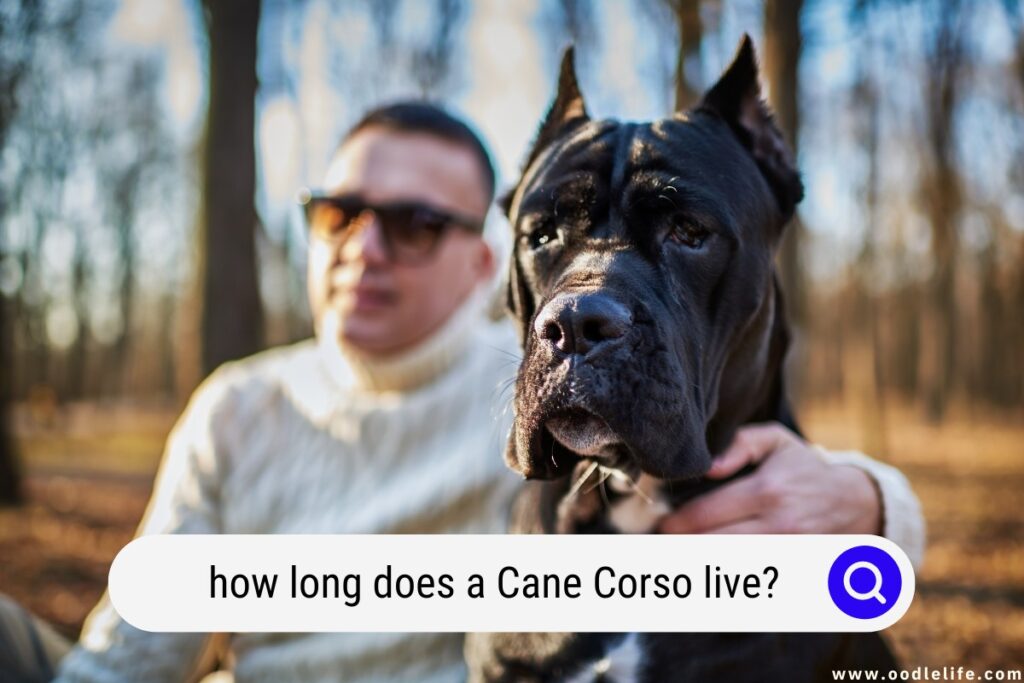
Keep reading to learn everything you need to know about the lifespan of Cane Corsos.
What Factors Determine the Lifespan of a Cane Corso?
Cane Corsos are large, athletic dogs with a reputation for being fiercely loyal to their families. Originally bred in Italy as guard dogs and hunting companions, they are now popular family pets in the United States. But how long do these big, lovable pups live?
Let’s take a look at the factors that influence the lifespan of a Cane Corso.
Weight and Body Size
There is a lot of variation in lifespan among individual dogs, and weight and body size are two factors that can play a role. For example, heavier dogs tend to live shorter lives than their leaner counterparts, and smaller dogs also tend to outlive larger ones. This may be because heavier dogs are more prone to joint problems and other health issues associated with excess weight.
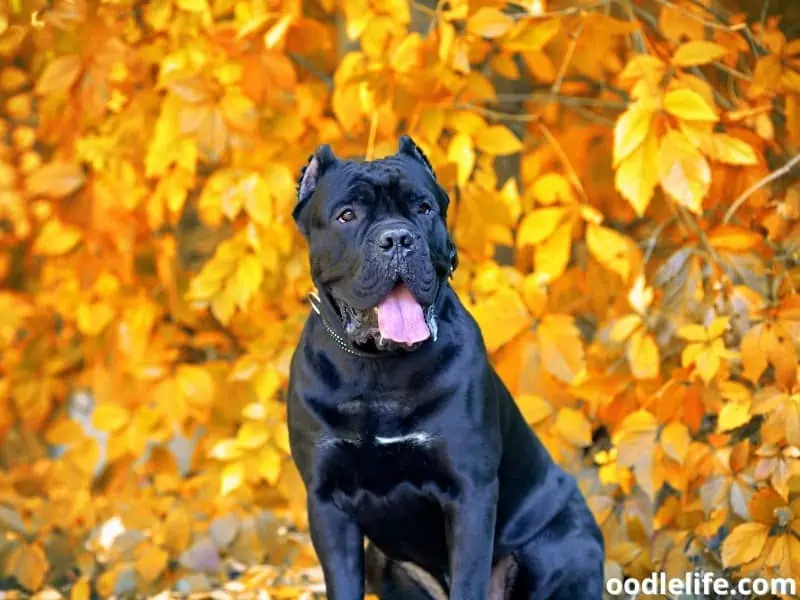
Similarly, large dogs may not live as long because their bodies grow too quickly and put a strain on their organs.
Of course, these are just general trends – there are always exceptions to the rule. Some large dogs live long lives despite their size, and some small dogs don’t make it to 10 years old. Ultimately, the best way to ensure a long and healthy life for your Cane Corso is to feed them a nutritious diet and help them maintain a healthy weight.
Exercise is also important for all dogs but is especially crucial for large breeds like the Cane Corso.
Training
If you’re a dog owner, you’ve probably heard that one of the best ways to keep your furry friend healthy and happy is to obedience train them. But did you know that training can also profoundly impact your dog’s lifespan?
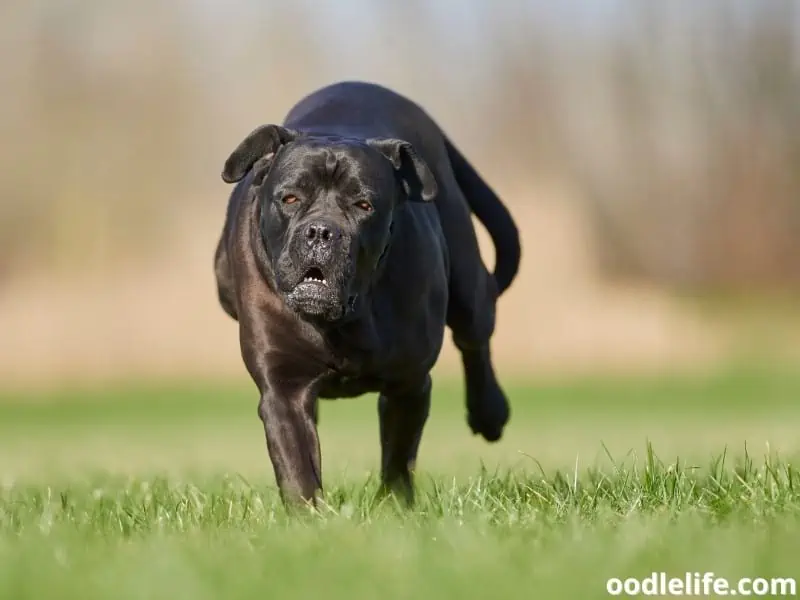
According to a recent study conducted by the Department of Veterinary Medicine at the University of Milan, obedience training can increase a dog’s lifespan by an average of 1.8 years.
So why exactly does obedience training have such a positive effect on a dog’s lifespan? The answer lies in the fact that obedience-trained dogs are less likely to develop behavior problems that can lead to them being relinquished to shelters or euthanized. Dogs with behavior problems are also more likely to be involved in accidents, which can shorten their lifespans.
In addition, obedience-trained dogs tend to be less stressed than untrained dogs, and stress has been linked with health problems like heart disease, diabetes, and cancer. So, reducing stress levels through training would also lead to a longer lifespan.
Genetics
As with any animal, the parents’ genetics play a significant role in the health and lifespan of the offspring. Therefore, when choosing a Cane Corso puppy, be sure to ask the breeder for health records of the parents. This will give you an idea of any genetic conditions that may be passed down to your puppy.
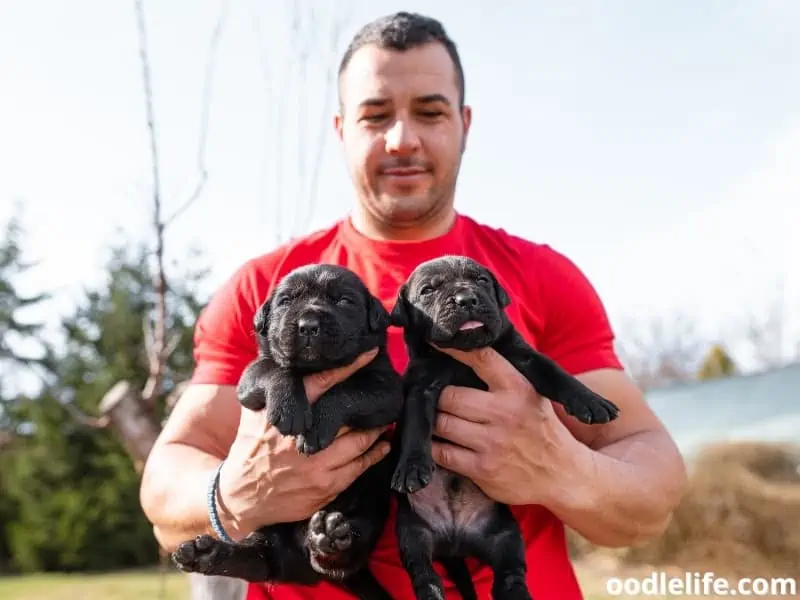
It’s also essential to choose a reputable breeder who has experience with the breed and isn’t running a puppy mill. Puppy mills are mass-breeding facilities that care more about profit than they do about the health and welfare of the dogs they are breeding.
Exercise
Researchers have long known that there is a correlation between exercise and longevity in humans. In addition, numerous studies have shown that physically active people tend to live longer and experience fewer health problems than sedentary people.
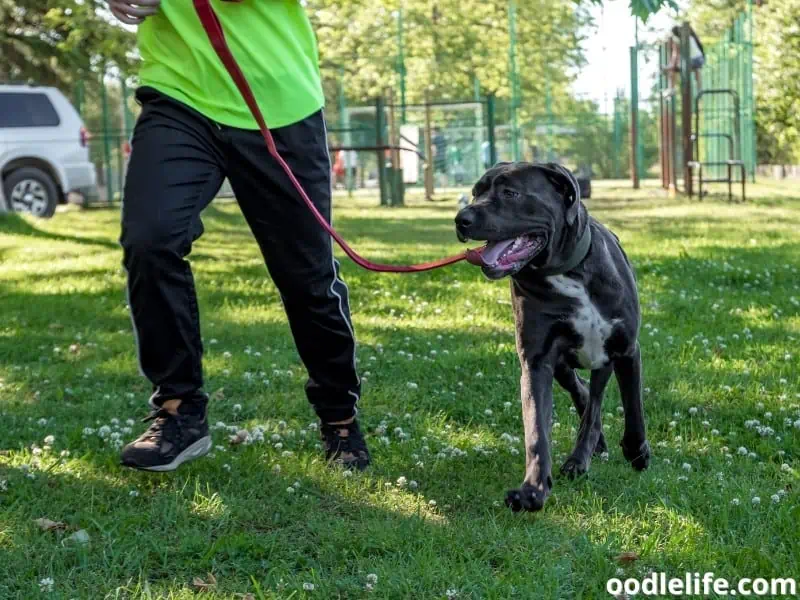
But what about our canine friends? Do they also benefit from regular exercise?
The answer is yes! A study conducted by the University of Georgia found that dogs who exercised regularly had a significantly lower risk of death than those who did not get regular exercise. In addition, the study found that dogs who exercised for at least an hour per day lived 2 years longer, on average, than those who did not get any exercise.
So, why exactly does exercise have such a positive impact on a dog’s lifespan? For one thing, regular exercise helps to keep a dog’s weight at a healthy level. This is important because obesity can lead to a host of health problems, including joint pain, diabetes, and heart disease.
Exercise also helps strengthen a dog’s bones and muscles, reducing the risk of injuries. And last but not least, exercise can help to improve a dog’s mental health by reducing stress and anxiety levels.
Diet
The Cane Corso is a large breed of dog that typically weighs between 80 and 110 pounds. They are muscular and athletic, which means they require a lot of food to maintain their energy levels. However, it’s important not to overfeed them, as this can lead to health problems like obesity.

While all dogs need a balanced diet of proteins, fats, carbohydrates, and vitamins and minerals, the Cane Corso has some specific dietary requirements. For example, they are particularly prone to hip dysplasia—a condition in which the hip joint doesn’t develop properly—so it’s crucial to ensure they get enough calcium and phosphorus in their diet. This can be achieved by feeding them commercial dog food designed for large breeds or supplementing their diet with additional calcium.
It’s also important to avoid feeding your Cane Corso table scraps, as this can cause them to gain weight. Dogs have different digestive systems than humans, so they can’t process certain foods as well as we can. In addition, many human foods like chocolate or onions are poisonous to dogs.
So while it might be tempting to give your dog a piece of your bacon or let them lick the plate clean after dinner, it’s best to resist the temptation and stick to their regular dog food.
Regular Check-Ups at the Vet
If you’re a dog owner, you know that keeping your furry friend healthy and happy is one of your top priorities. And part of maintaining your dog’s health is making sure they stay up to date on their vaccinations and have regular check-ups with the vet.
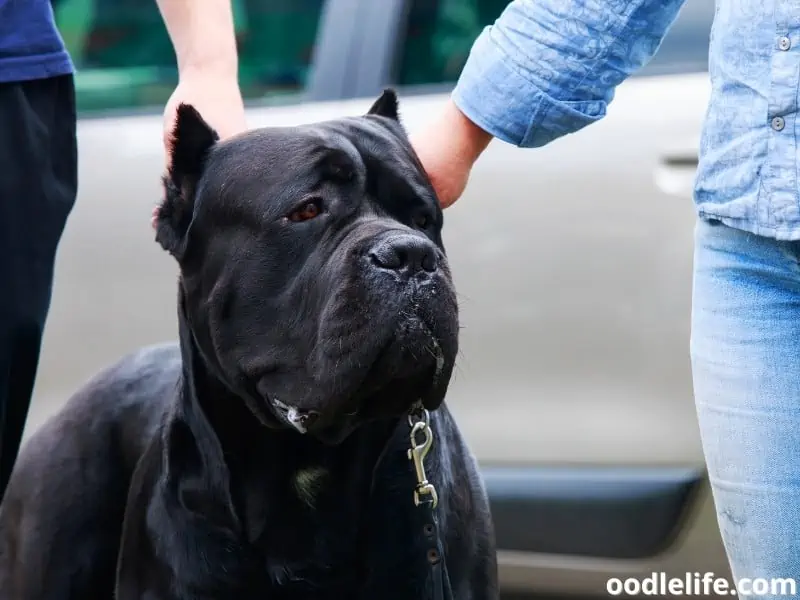
But did you know that regular vet check-ups can also affect your dog’s lifespan? A recent study has shown that dogs who visit the vet at least once a year live, on average, 2.5 years longer than dogs who only see the vet when they’re sick.
There are several reasons why regular vet check-ups are essential for your dog.
- First and foremost, they allow your vet to catch any potential health problems early on before they can become more serious.
- Additionally, annual check-ups allow you to ask your vet any questions you may have about your dog’s diet, exercise routine, or behavior.
- And finally, regular check-ups help reinforce the bond between you and your vet, which can be beneficial if your dog does become sick or injured and needs emergency care.
The American Veterinary Medical Association recommends that all dogs have a check-up at least once a year. Puppies should go to the vet more frequently during their first year of life to keep their vaccines up to date. Senior dogs may also need to see the vet more often as they age so that any age-related health problems can be detected and treated early on.
Health Concerns
Before you decide to bring one of these furry friends into your home, it’s important to be aware of the potential health concerns that come with the breed. Hip dysplasia, ectropion, entropion, epilepsy, skin allergies, and gastric torsion are all conditions to which Cane Corsos are susceptible.
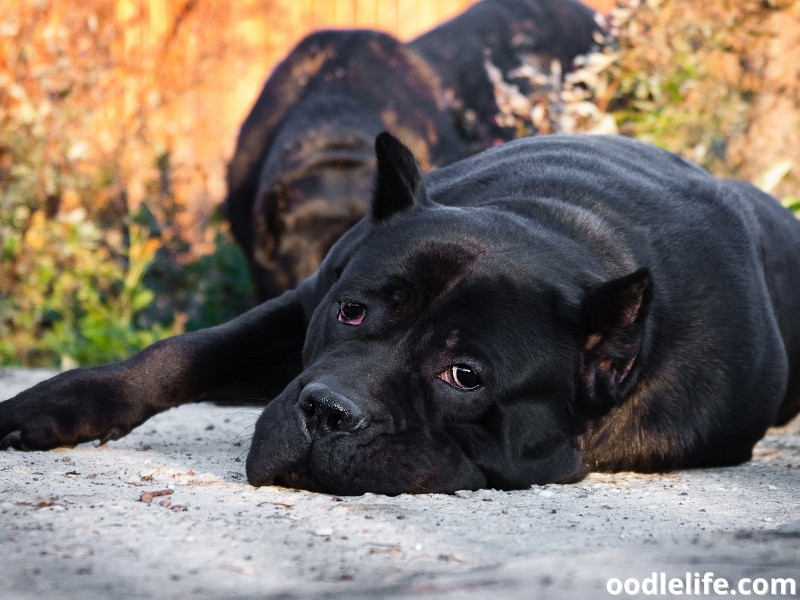
Let’s take a closer look at each of these health concerns and what you can do to help your Cane Corso live a long and healthy life.
Hip Dysplasia
Hip dysplasia is a condition that affects the hip joints of dogs. It occurs when the head of the thigh bone does not fit snugly into the hip socket. This can cause pain and arthritis later in life.
Hip dysplasia is hereditary, so it’s essential to choose a breeder who has had their dogs’ hips checked and cleared by a veterinarian.
Ectropion and Entropion
Ectropion and entropion are both conditions that affect the eyes. Ectropion is when the bottom eyelid sags away from the eye, while entropion is when the eyelid rolls inward toward the eye. Both of these conditions can cause irritation and even corneal ulcers.
Therefore, they are usually treated with surgery.
Epilepsy
Epilepsy is a neurological condition that causes seizures. It can be controlled with medication, but there is no cure.
Skin Allergies
Cane Corsos are prone to skin allergies resulting in itchiness, redness, hair loss, and hot spots. If your dog is itching excessively, see your veterinarian to determine if they have allergies and the best course of treatment.
Gastric Torsion
Gastric torsion (or bloat) is a life-threatening condition that occurs when the tummy fills with gas or food and then twists on itself. Symptoms include excessive drooling, restlessness, pacing, panting, salvation, and an enlarged stomach. Gastric torsion requires immediate veterinary attention; if not treated quickly enough, it can be fatal.
The Cane Corso is a wonderful breed of dog, but like all breeds, they come with their own health concerns. Before you get a Cane Corso puppy, make sure you are prepared to deal with conditions like hip dysplasia, ectropion/entropion, epilepsy, skin allergies, and gastric torsion. By being informed about these potential health concerns, you can be better prepared to deal with them if they arise.
Conclusion
While the average lifespan of a Cane Corso is 10-12 years, there are many variables that can influence this number. From diet and exercise to genetics and environment, each one plays a role in determining how long your pup will be by your side.
By taking good care of your Cane Corso and ensuring they have everything they need to thrive, you can help them reach their full potential and enjoy many happy years together.